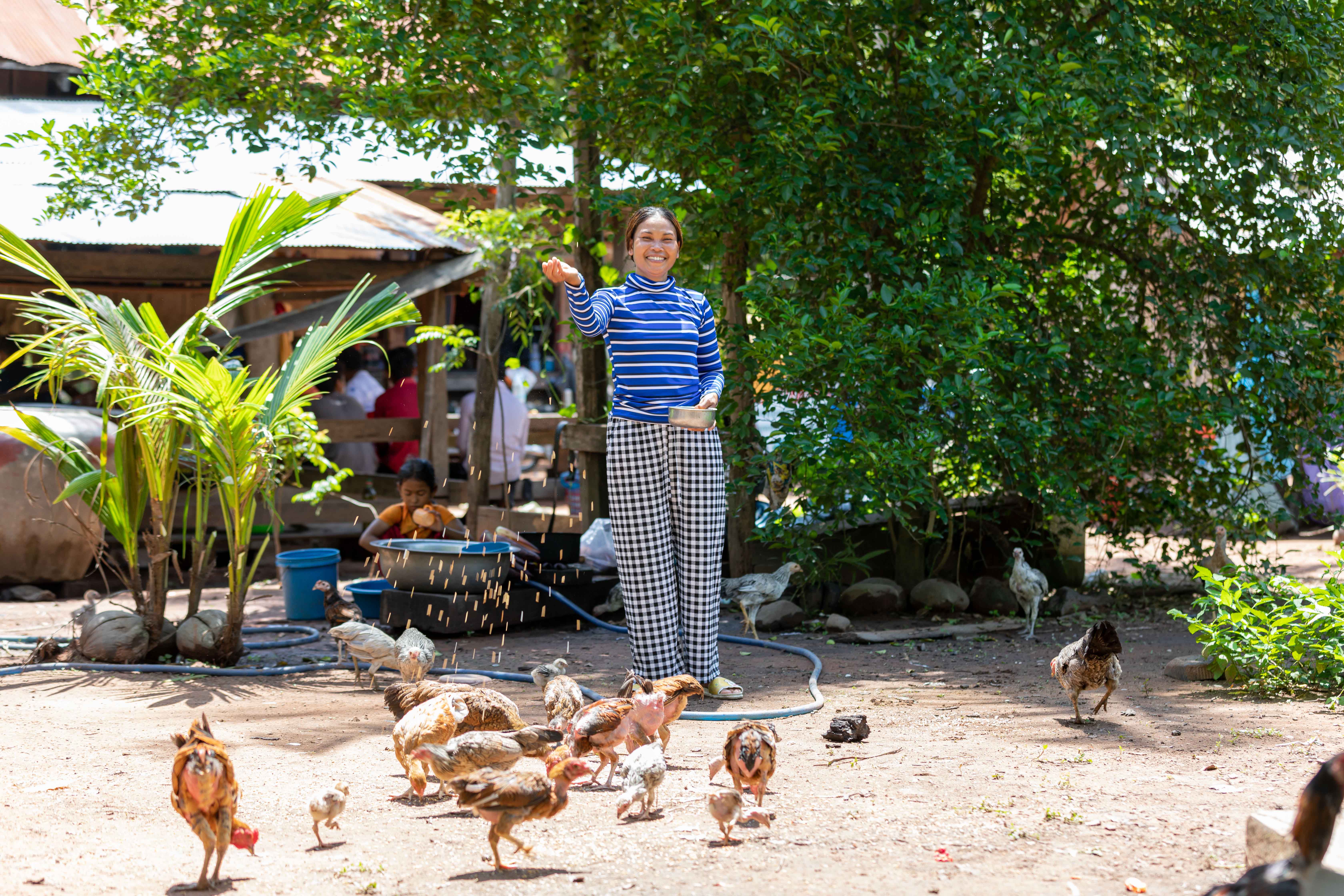Hun Sao was elected as the committee leader for Kampong Speu’s Ralarkkongcheung Community Protected Area in 2019. With support from the Collaborative Management for Watershed and Ecosystem Service Protection and Rehabilitation (CoWES) project, he has since led initiatives to provide water to 96 families in his village, patrol the forest to prevent deforestation, and diversify his family’s income. His journey to leadership and passion for protecting the forest is both inspiring and unexpected.
Hun Sao, the committee leader for Kampong Speu’s Ralarkkongcheung Community Protected Area in 2019. ©️Manuth Buth - UNDP Cambodia
For three difficult years, Hun Sao collected and sold timber to earn an income for his family of four. The money he earned from logging activities was, however, quickly diminished by payments for healthcare, fuel and unofficial transfers to guards for him to perform his work. His family was worried about his safety, with Hun Sao often leaving for long shifts and not returning until the early hours of the morning.
The family decided to transition to agricultural work, planting bananas, papayas, and other crops on their 1 hectare plot of land. The market was limited for these products and they continued to struggle to earn a sustainable income given the high cost of water and a lack of agricultural technologies.
In early 2018, the Collaborative Management for Watershed and Ecosystem Service Protection and Rehabilitation (CoWES) project began work in Hun Sao’s village. With support from the Global Environment Facility, Ministry of Agriculture, Forestry and Fisheries, and UNDP, the project promotes collaborative management and rehabilitation of agricultural land and forest areas through sustainable land management and watershed stabilization.
The Ralarkkongcheung Community Protected Area (CPA) committee was facing difficulties in managing protection of the forest area, and the community requested a newly elected CPA committee. Hun Sao was chosen as the new leader in 2019. In his new role, the CoWES project provided him with training on management and leadership of the CPA, and best practices in agriculture and ecotourism.
His first milestone achievement as a CPA leader was to spearhead the project’s work to connect his village to a water source 9.5 kilometres uphill from the village. “I never dreamt my village would have a water system. I couldn’t sleep for a night before the water came, feeling both happy and worried,” he shares.
As a result of Hun Sao’s leadership on the initiative, 96 families in his village now have access to water at home, including his own family. With new access to a direct water supply, Hun Sao and Poav Klot, his wife, began planting new varieties of vegetables and raising chickens and ducks. Poav Klot manages the garden and livestock, and makes traditional wine to sell for supplemental income.
96 families in the village now have access to a direct water supply at home. ©️Manuth Buth - UNDP Cambodia
Poav Klot, tending her chickens. ©️Manuth Buth - UNDP Cambodia
Hun Sao now patrols the very forests he used to collect timber from, monitoring illegal logging activity in the CPA. He collects non-timber forest products used in traditional medicine and accompanies eco-tourists to visit the forests he knows better than anyone. His traditional medicine sells for $20/kg and each of his ecotourism trips costs around $40.
The CoWES project has sparked a newfound desire for Hun Sao and his community to protect the forest. He recognizes the important lifeline it provides for diversifying his sources of income and the income of others in his community. “Without the forest, the community will not benefit from non-forest timber products. It would also be without water. Because our village is located in a mountainous area, the forest can help our villagers mitigate flash floods in the rainy season and drought in the dry season.”
Kompong Speu Province. ©️Manuth Buth - UNDP Cambodia
Project Page: https://www.kh.undp.org/content/cambodia/en/home/projects/collaborative-management-for-watershed-and-ecosystem.html

 Locations
Locations








